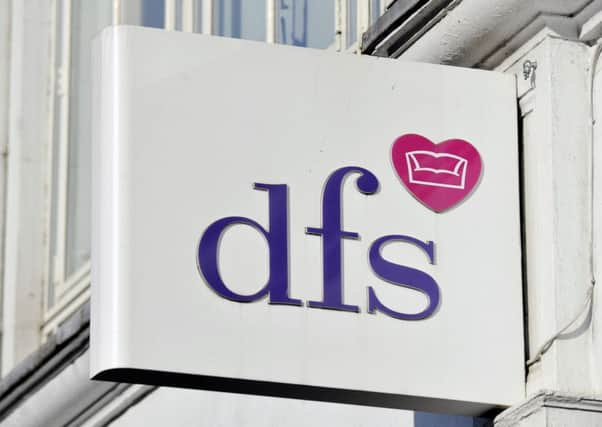Sofa retailer DFS warns of hit from weather and election
This article contains affiliate links. We may earn a small commission on items purchased through this article, but that does not affect our editorial judgement.


The retailer said it saw “significant declines in store footfall and customer orders” from April to June, leading to a 4 per cent fall in second-half revenue.
It follows a strong first six months of the year, when sales rose 7 per cent, helping total revenue for the year ending 29 July eke out 1 per cent growth.
Advertisement
Hide AdAdvertisement
Hide AdAs previously flagged, DFS anticipates full-year operating profit to be lower than market expectations, in the range of £82 million to £87m.
In a stock market update, the retailer said: “The second half has been weaker than we expected owing to significant declines in store footfall and customer orders across April, May and June.
“We believe this to be an industry-wide issue, resulting from the uncertain economic environment and unexpected general election, exacerbated by warm weather in May and June.”
The group described the UK furniture market as “very challenging” with an uncertain outlook.
DFS added that it will seek out efficiency savings as revenue growth becomes “harder to achieve in the short term”. However, the firm said that its summer sale “started satisfactorily in July”.
Last week DFS acquired rival Sofology in a £25m deal and will take over its chain of 37 UK stores.
Advertisement
Hide AdAdvertisement
Hide AdSoaring inflation caused by the collapse of the Brexit-hit pound has pushed up shop prices for hard-pressed consumers, leading retail sales to slump.
• READ MORE: Summer outlook is far from sunny for retail sector
Neil Wilson, senior market analyst at ETX Capital, said: “Certainly consumer spending, which was remarkably robust in the six months after the EU referendum, has started to suffer.
“Sofas are probably the first to suffer as they require a commitment from the buyer to pay a certain amount each month. This requires job security and rising earnings.
“While the employment rate has remained extremely robust, real earnings are not so good, meaning it’s a lot tougher for people to afford that extra monthly commitment.”